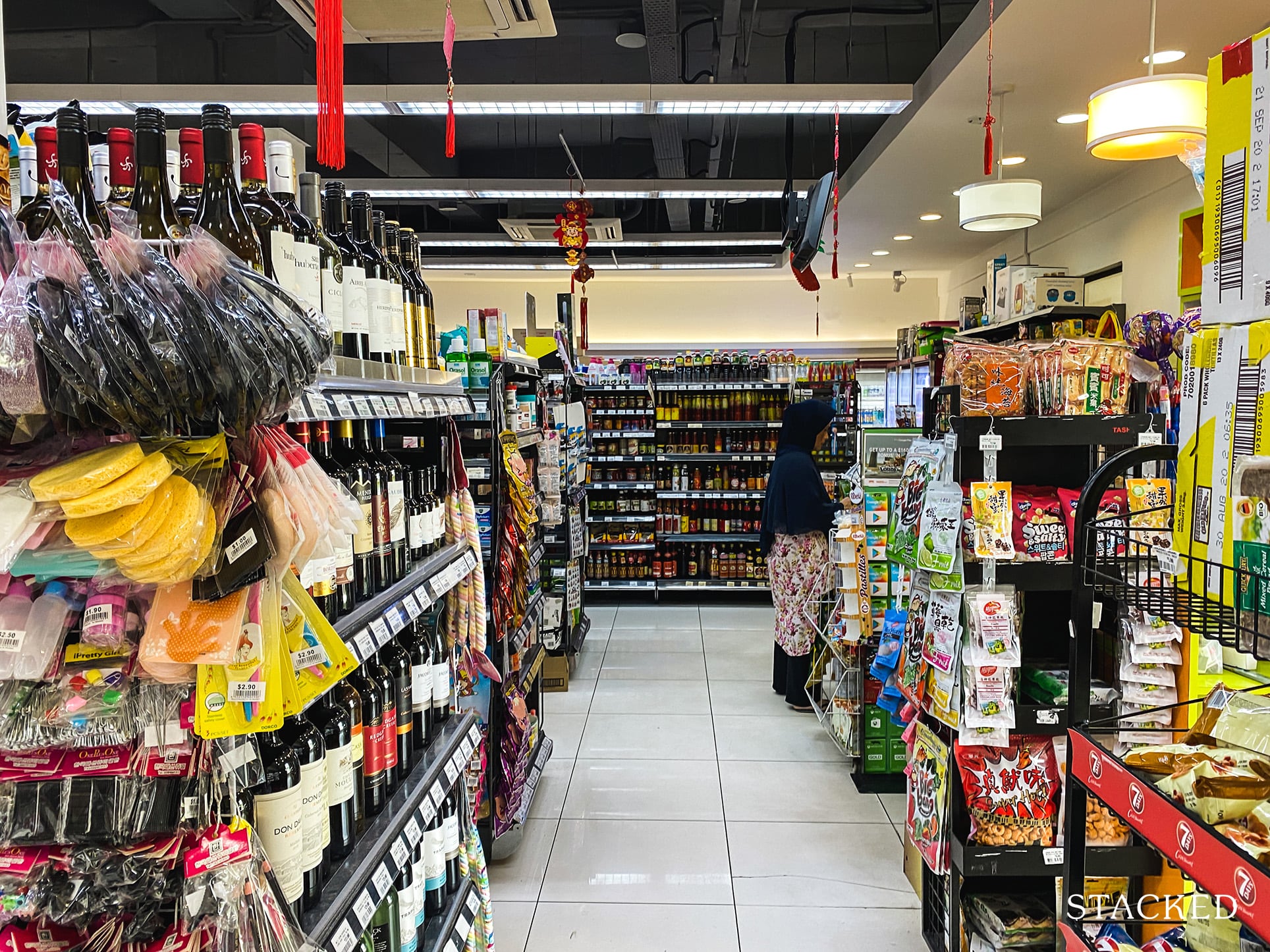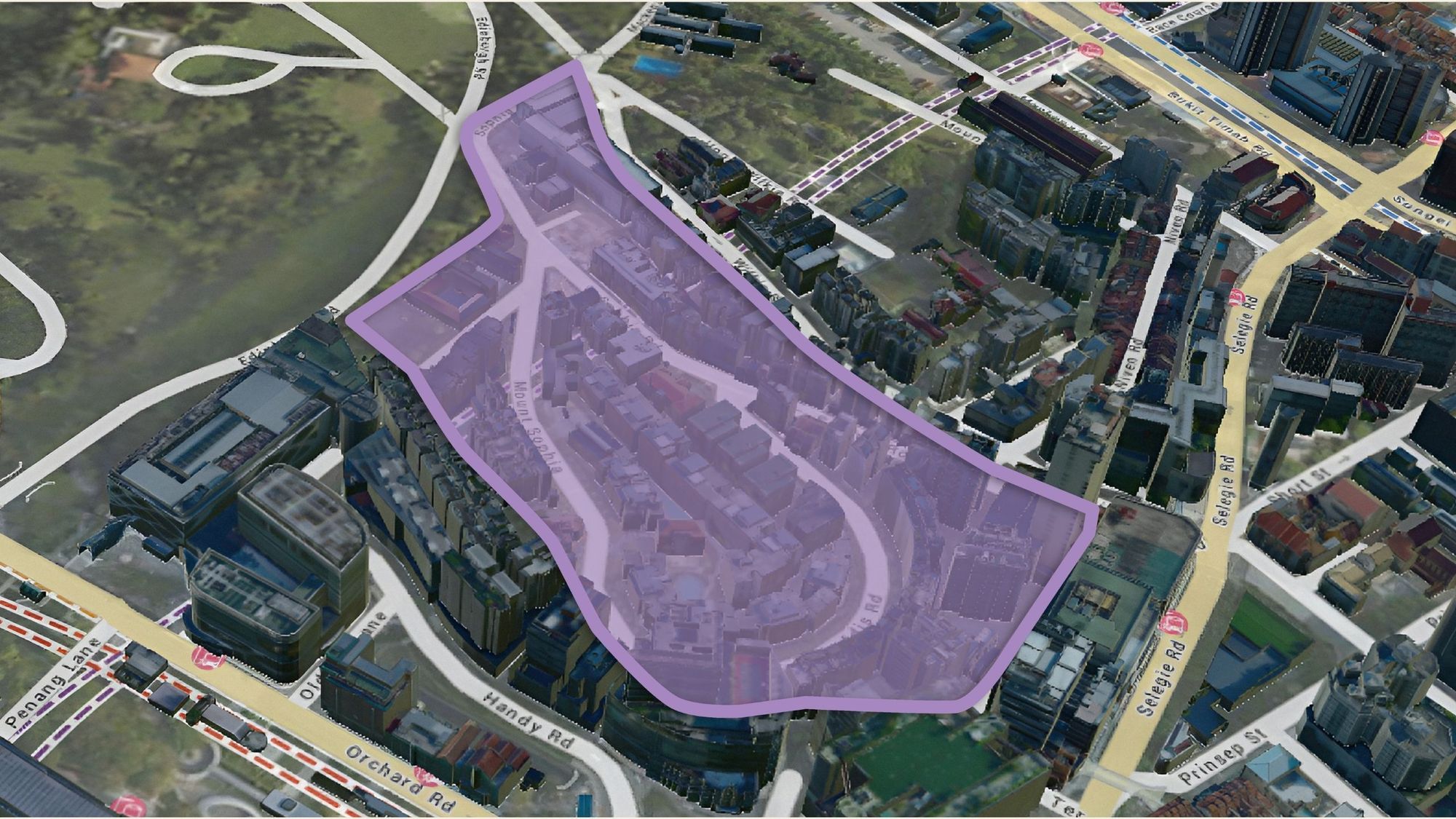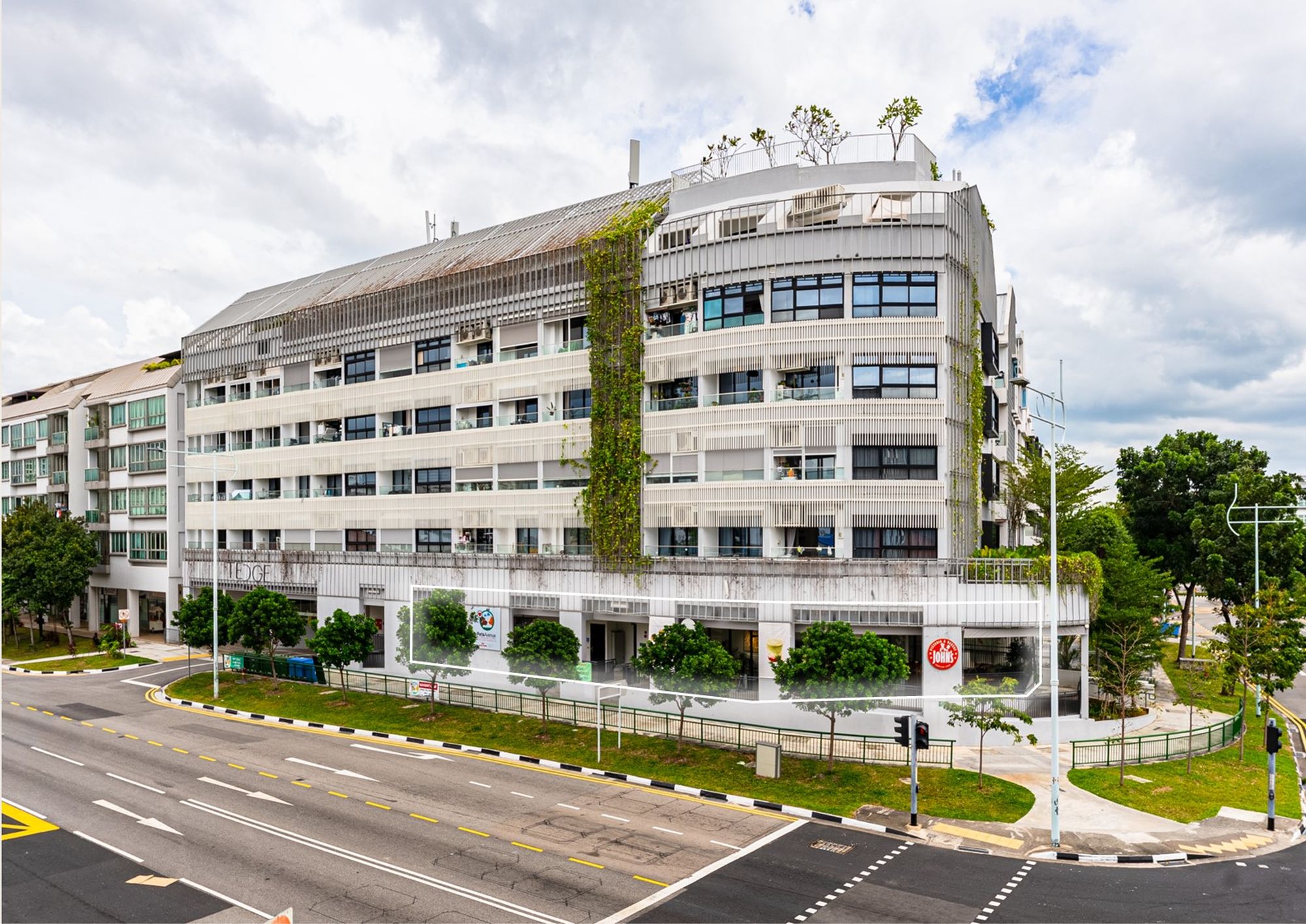I Owned A Store In My Condo In Singapore For 10 Years: And Here’s Why I’d Never Recommend It Today
April 13, 2025

It’s not uncommon to find some small convenience stores, clinics, cafes, etc. within the grounds of some condo projects. Not enough to consider them mixed-use, but enough to provide small amenities; usually to condos that are (or were) further from public transport. These commercial spaces are not especially popular, though, as it’s assumed that only the condo and possibly a neighbouring project will visit; and yet our reader PY once owned such a space. This is what it was like operating a store in her own condo:
So many readers write in because they're unsure what to do next, and don't know who to trust.
If this sounds familiar, we offer structured 1-to-1 consultations where we walk through your finances, goals, and market options objectively.
No obligation. Just clarity.
Learn more here.
Good prospects for a convenience store
PY says that at the time she bought the shop space, the surrounding areas were very undeveloped. While it’s quite different today (it’s the site of an upcoming HDB enclave), it was very inaccessible and isolated back in the 2000s. PY says:
“The condo and the surrounding ones are all very big, 900 to 1,000+ units, but there was nothing nearby except a Chinese restaurant. I noticed the cafes in our condos were getting a lot of business because there was nothing else nearby. At that time, we didn’t have GrabFood or FoodPanda. You had to drive, or walk out very far to the bus stop and travel to MRT.”
She doesn’t want to disclose the exact location, but we can hint that it’s somewhere that benefits from a recent TEL station, and is close to East Coast Beach.
PY also has a background in running a store: her parents have run a minimart for 17 years, and she also helped out in the business during Secondary School and her JC years.
A workplace close to home, where you can “be your own boss”
PY says when she set up the store, Work From Home was not yet a common concept. This made things difficult as her son needed help:
“My son just entered Primary 1 and we found out he was struggling with dyslexia, and last time there was Primary School streaming. After Primary 3, you would be streamed into EM1, EM2, or EM3, so we had to be hands on a lot earlier, as it’s a short time to Primary 3.”
(Note: This was a long time ago, and the streaming PY refers to is no longer practiced.)
When the owner of one of the shops left, and put it up for sale, PY saw an opportunity. While her husband was at work, she would run a minimart in the development with the help of her mother. Her mother could manage the store for brief periods when she went to pick up her son, and just before closing.
PY says the upfront costs were painful and required a business loan, as after buying the space, they still needed renovations and inventory. However, it was manageable thanks to contacts from her parents, and because PY was a “saver type” who had been building her funds since her JC days.
Lessons from running a shop in a condo
PY says the main problem with such a shop is space. While inventory space is a universal challenge for any minimart-type business, it’s especially a problem in the small shops you find in condos. This refers to the odd row of shops in some projects, and not a full-blown mixed-use or integrated project.
Unlike a “real” mixed-use project, there’s no large loading bay for delivering crates of food; so PY’s suppliers drew a lot of frustration when they sometimes blocked the walkway. In PY’s store, there was literally one entrance to bring in products, which was the same one customers had to use to get in and out. This required a lot of timing as to when deliveries arrived or were brought in. While PY’s parents identified this as a problem from day one, she underestimated how frustrating this would be.
More from Stacked
Should You Rent Your HDB Out To Rent A Condo Instead? How Rentvesting Could “Save” You Money
I follow a few property blogs, and the reason I do so is to look at different property landscapes and…
PY also found out that, contrary to getting to know your neighbours, you’ll likely end up knowing their domestic helpers or their children: “Most people would send their maids down to buy things, and the children will follow – so after a while you know them by their maid and their children, even if you don’t know their faces.”
After a while, PY would have their routines memorised, and even had the contact numbers for some of the maids. On a few occasions, she would meet the maids with their groceries at the entrance of their block, if they needed something after the store closed.
As for children, PY says they drive a surprisingly large part of sales, as they buy stickers, trading cards, and other items that, whilst cheap, have good margins. In fact, she says one of the “make or break” factors may be the number of children in the project, as they drive the sales of certain items like breakfast cereals and ice-cream; these can have a higher mark-up depending on branding.
It makes it even harder to separate work and home life sometimes
PY warns that it’s not for people who like a frequent change of scenery, or who dislike routine: “You’re going to move between your house and the shop downstairs every day, including weekends. So it does get quite tedious because you feel your whole life is just confined to that condo.”
PY would hire help later; while this gave her more time away from the condo – especially on weekends – there would still be many small crises that would cause her to rush back. She also recalls one occasion when her employer caught a child stealing from the shop, and reported it to the security guard. This angered the child’s parents, who were both residents as well, so PY had to cancel her dinner plans and rush back to mediate.
Ultimately, it’s both a pro and a con to work so close to home: it does mean you’re never far from the comfort of your living room, but it also means you never fully dissociate from work.
Not an advisable move in the current era of instant deliveries
PY sold the shop and her unit after around a decade. By then her son was already about to complete Secondary school, and she’d started a new line of work. While PY doesn’t regret her move, and says the shop was “decently profitable,” she can’t see such a business working in the current era:
“Why do you need a shop in your condo now, when you can order anything you need on your phone? And nowadays, everywhere is better connected, the residents are not reliant on your shop just because it’s a bit closer. It’s the same reason minimarts are dying in HDB estates.”
PY speculates that, if there were a use for these small condo shops today, it would likely be more service-oriented, such as a pediatrics office or a laundromat. These businesses may also alleviate issues such as inventory space and deliveries, which are problematic in small shops.
At Stacked, we like to look beyond the headlines and surface-level numbers, and focus on how things play out in the real world.
If you’d like to discuss how this applies to your own circumstances, you can reach out for a one-to-one consultation here.
And if you simply have a question or want to share a thought, feel free to write to us at stories@stackedhomes.com — we read every message.
Ryan J. Ong
A seasoned content strategist with over 17 years in the real estate and financial journalism sectors, Ryan has built a reputation for transforming complex industry jargon into accessible knowledge. With a track record of writing and editing for leading financial platforms and publications, Ryan's expertise has been recognised across various media outlets. His role as a former content editor for 99.co and a co-host for CNA 938's Open House programme underscores his commitment to providing valuable insights into the property market.Need help with a property decision?
Speak to our team →Read next from Homeowner Stories

Homeowner Stories We Could Walk Away With $460,000 In Cash From Our EC. Here’s Why We Didn’t Upgrade.

Homeowner Stories What I Only Learned After My First Year Of Homeownership In Singapore

Homeowner Stories I Gave My Parents My Condo and Moved Into Their HDB — Here’s Why It Made Sense.

Homeowner Stories “I Thought I Could Wait for a Better New Launch Condo” How One Buyer’s Fear Ended Up Costing Him $358K
Latest Posts

Editor's Pick These Freehold Condos Near Orchard Haven’t Seen Much Price Growth — Here’s Why

Singapore Property News These 4 Freehold Retail Units Are Back On The Market — After A $4M Price Cut

Pro This 130-Unit Boutique Condo Launched At A Premium — Here’s What 8 Years Revealed About The Winners And Losers





































0 Comments